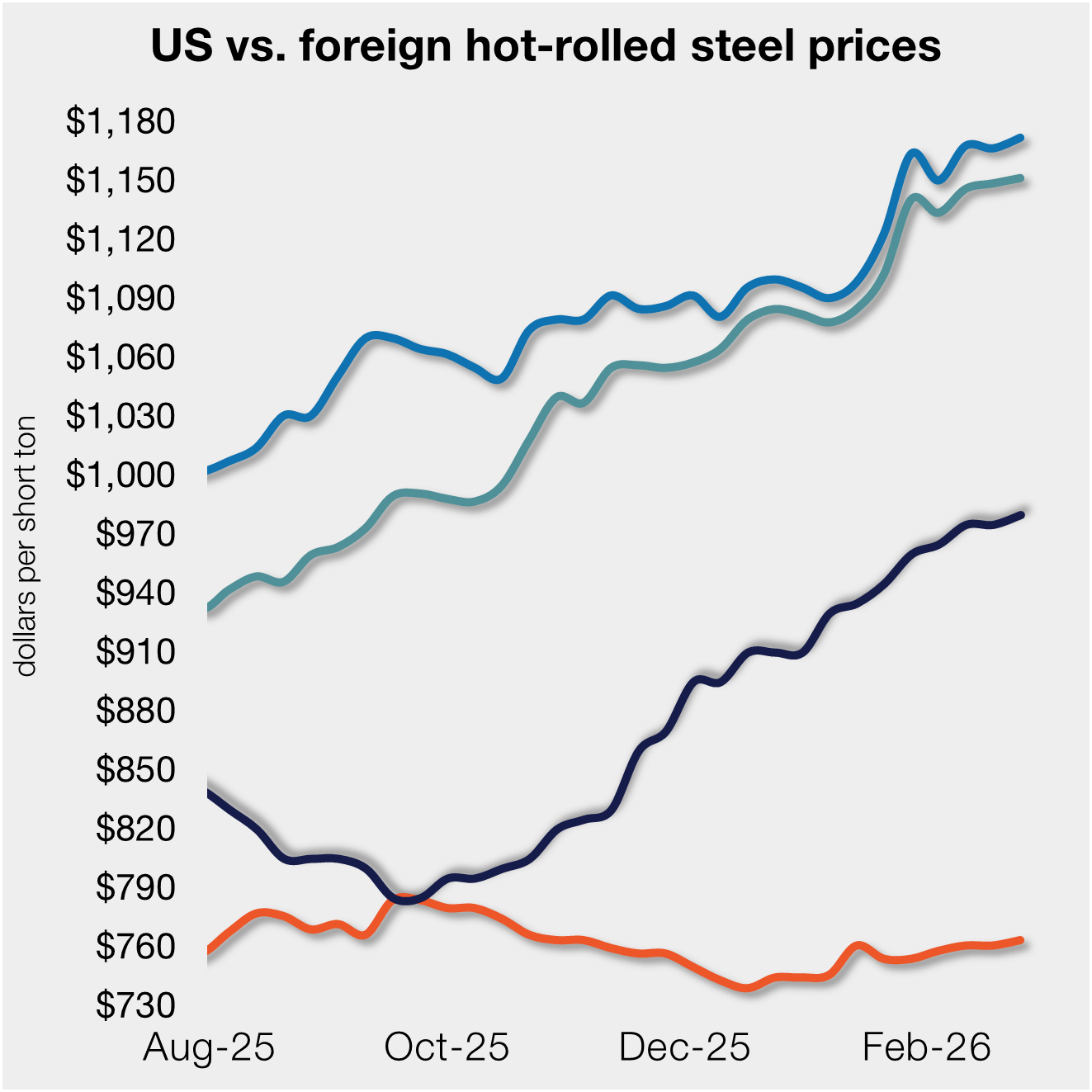Prices

March 31, 2015
Letter to Editor: Steel Quotas Not the Answer
Written by John Packard
Last week a number of steel mill CEO’s testified before the U.S. Congress about the flood of steel imports and the need to protect the domestic steel industry. Separate from the CEO’s testimony, former Nucur CEO called for quotas to be implemented against foreign steel which he considered to be unfairly traded. Steel Market Update received the following letter to the editor reminding us of some history and refuting Mr. DiMicco’s calls for quotas:
The steel workers union (USW) strike in 1966 when over 500,000 steel workers went on strike was the beginning of larger steel imports into the USA. Companies around the USA needed steel for the automobile industry, the construction industry and the growing defense industry involved in the Vietnam war and they turned to the Europeans for help. It would be the beginning of steel exports from Europe to the USA where a high dollar value was making exporting very attractive and helped the Europeans to build up a strong steel industry.
![]() The strike was of course settled but the Europeans, and by now the Japanese and Koreans, liked the exports to the USA especially since the USA couldn’t produce enough steel for their growing consumption. Soon the US domestic mills started to complain and in 1969 the so called ‘ VRA ‘ ( Voluntary Restraint Agreement ) between the US and the then 6 countries of the European Economic Community was put in place lasting for 3 years.
The strike was of course settled but the Europeans, and by now the Japanese and Koreans, liked the exports to the USA especially since the USA couldn’t produce enough steel for their growing consumption. Soon the US domestic mills started to complain and in 1969 the so called ‘ VRA ‘ ( Voluntary Restraint Agreement ) between the US and the then 6 countries of the European Economic Community was put in place lasting for 3 years.
Several years later the US steel industry went again to Washington and asked for protection which in 1978 resulted in the ‘ Trigger Price Mechanism (TPM) ‘ which set minimum prices for imports. Since then several ‘ VRA ‘ and ‘ Suspension Agreements’ have been negotiated and the US steel industry has not stopped filing dumping and countervailing duty cases in Washington, more than any other industry.
In 1776 Adam Smith wrote that ” rationalizations of import and export controls are dupery which hurt the trading nation at the expense of specific industries”. While some of the import restriction measures had resulted in higher prices it had also the negative effect of making exports of products made from steel less competitive.
Lets take a look at the imports of steel into the USA and Mr. DiMicco’s comments:
About 25% of all imports are semi finished, i.e. are being imported by steel makers who find it convenient and cost saving to buy slabs from overseas instead of making them in the USA. These semi finished imports are from the same producers that are being accused of being ‘unfairly traded ‘, ‘highly subsidized ‘ and are considered to be ” trade cheaters ” by Mr.DiMicco. Does that make sense?
There is no question that companies in countries like China, Russia and others are ‘State Owned Industries’ but over 70% of all imports are coming from Mexico, Canada, the EU and Japan where there are no more State Owned Industries. Imports from China are less than 5% of total imports.
The cost of production today is more influenced by exchange rates, fluctuating energy and raw material costs and logistics than 20 years ago. Not every ton of steel that enters this country is ” stolen or illegally traded ” .
Another quota system cannot be the answer.







